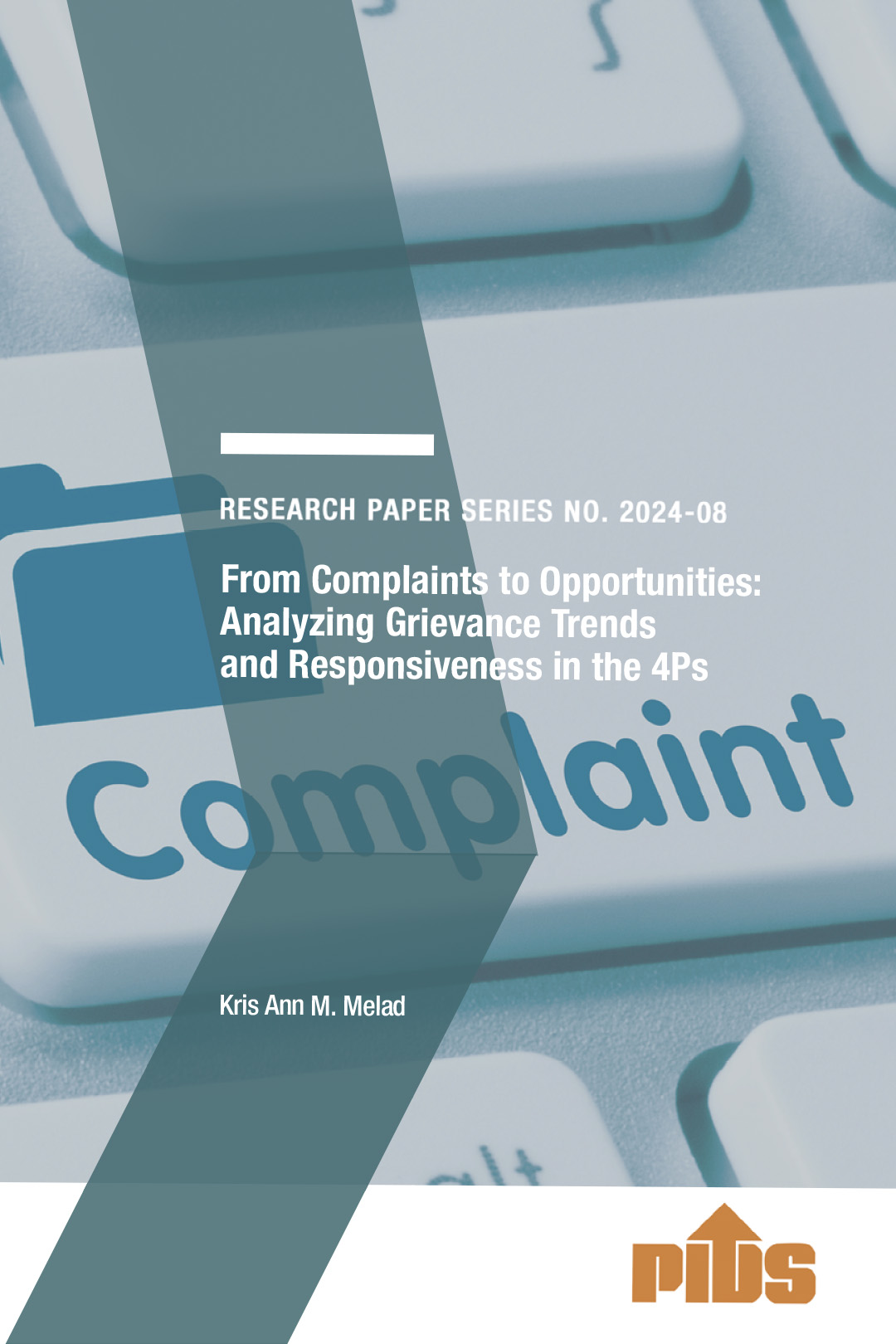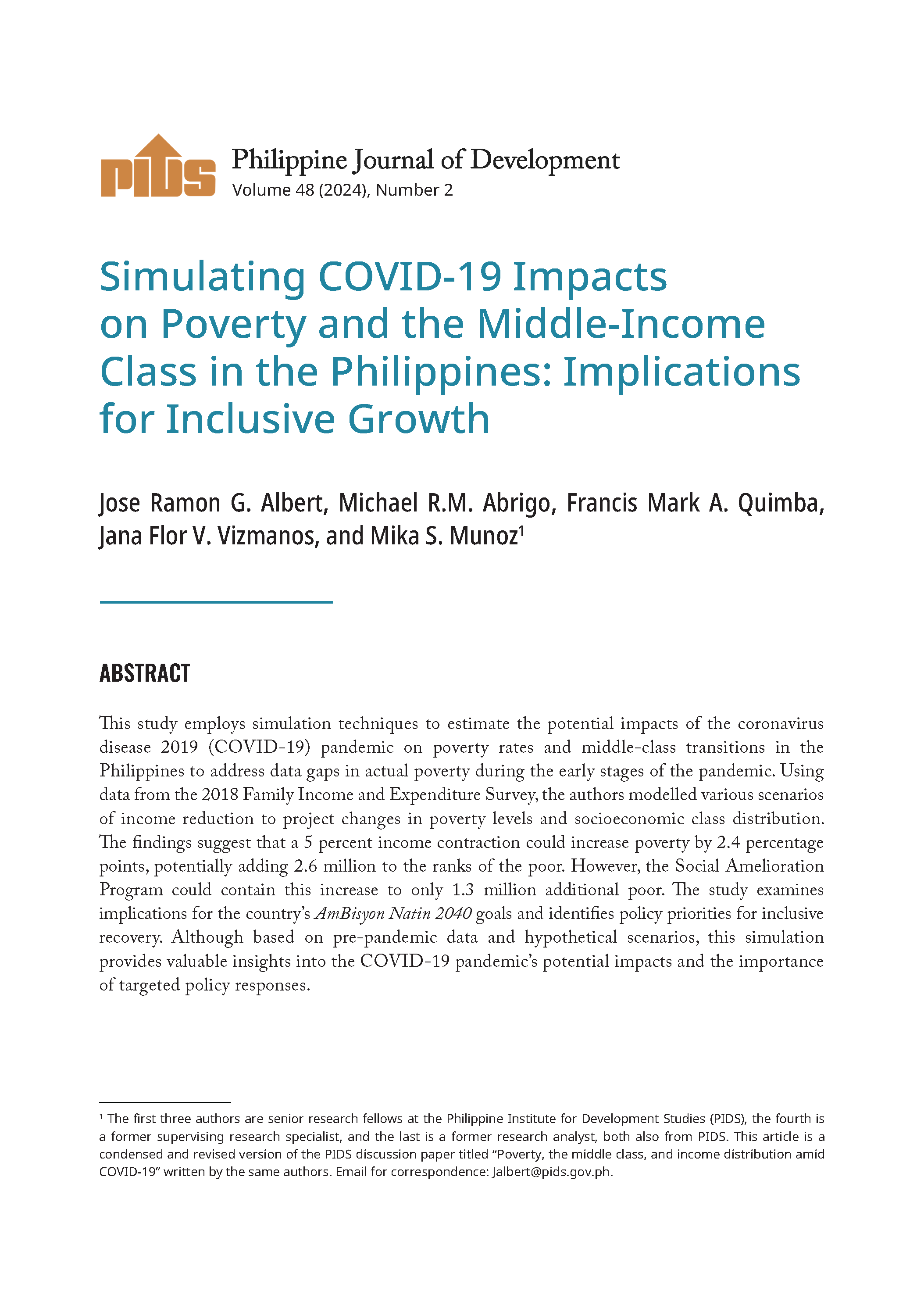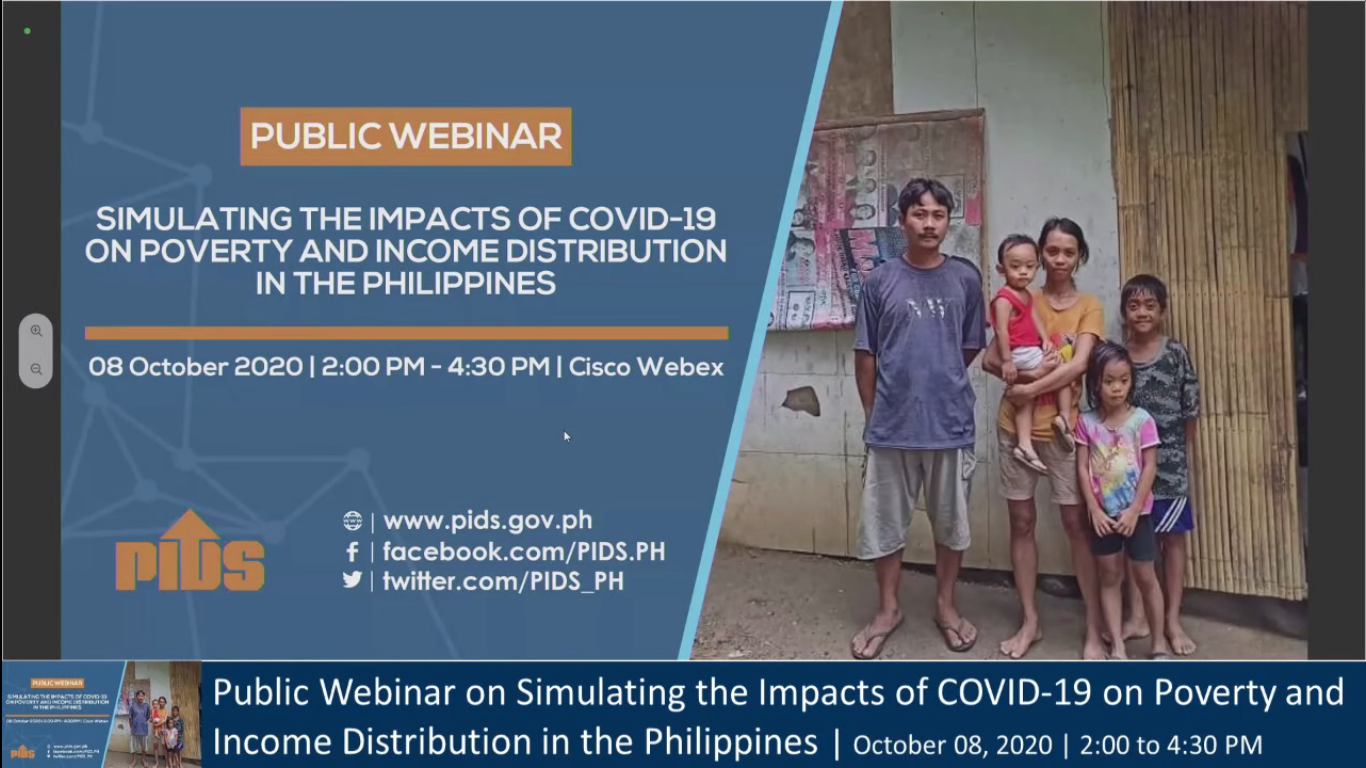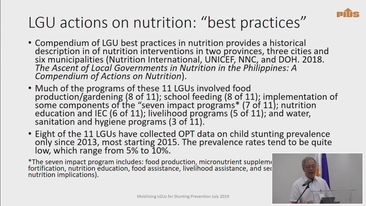The uncertainty caused by the siege in Marawi City would aggravate the poverty situation in Lanao del Sur, which remains as the poorest province in the Philippines, according to analysts.
Lanao del Sur, based on the 2015 Poverty Statistics, is the poorest province nationwide with a poverty incidence rate of 71.9 percent in 2015. This means that 7 out of 10 residents of the province are poor.
The province’s capital city, Marawi, had a poverty incidence rate of 60 percent, based on the Philippine Statistics Authority’s (PSA) Small Area Estimates in 2012. “Poverty depends on income and livelihood,” Philippine Institute for Development Studies (PIDS) senior research fellowJose Ramon G. Albert said. “Livelihood ultimately depends on peace, law and order, and a good investment climate.
PIDS senior fellow Roehlano M. Briones said poverty incidence may increase, especially in areas where there is fighting.
Briones added the loss of livelihoods, including farming, which is common in rural areas, are some of the “localized effects” of the siege of Marawi City.
This also the reason University of Asia and the Pacific School of Economics Dean Cid Terosa said the rest of Mindanao will suffer minimal impact from the fighting.
Poverty in Marawi City will most probably worsen but poverty in the other poorest provinces in Mindanao will not be drastically affected. Investors and businessmen have moved away from the blanket notion that peace and order in the entire Mindanao is worrisome,” Terosa said.
Nonetheless, Ateneo de Manila EagleWatch senior fellow Alvin Ang said the negative impact of the siege makes it “imperative” to resolve the issue immediately and decisively.
The current challenge must be addressed soonest and decisively. [There is a need to] settle the issue and prepare a reconstruction plan now for immediate implementation,” Ang said. Former Socioeconomic Planning Secretary Romulo A. Neri said he believes the government is already addressing the issue in Marawi City.
If it is successful, Neri believes it will improve the region’s and the country’s economic prospects.
In a recent forum organized by the University of the Philippines College of Mass Communication and the Honolulu-based East West Center, Neri said more than economic growth, Filipinos in these areas must be able to benefit from the growth felt in select cities nationwide. This is because GDP measurement does not take into consideration social costs, such as pollution and traffic, as well as economic and social equity and entitlement issues.
He added that GDP is also silent on the ill effects of destructive expenditures, such as cutting down virgin forests and the depletion of natural resources.
Felipe Medalla, also a former socioeconomic planning chief, said the imposition of martial law in Minadnao will have “minimal” impact on the economy because that imposed by the late-President Ferdinand E. Marcos. “To me, the difference I’ve seen now is there’s no talk about shutting down the media, there’s no talk about limiting discussions, and so forth. Maybe he [President Duterte] knows something we don’t know. If, for instance, there is an international coordination of terrorism, that would not be easy,” Medalla said.
Last Saturday the National Economic and Development Authority (Neda) said it “acknowledged” the “seriousness of the crisis situation in Lanao del Sur centered in and around Marawi City.
However, Socioeconomic Planning Secretary Ernesto M. Pernia said economic growth cannot be sufficiently sustained nor be inclusive without peace.
This is why achieving peace, Pernia said, security and public order is considered a bedrock strategy under the Philippine Development Plan (PDP) 2017-2022.
Having the watchful eye of government forces, especially in Mindanao, will ease tensions and allow communities to live normally,” Pernia said.
Lawmakers last Sunday said addressing the violence and war first in Mindanao will help the government to eradicate poverty in the area.
House Committee on Appropriations and National Unity Party Rep. Karlo Alexei B. Nograles of Davao City said the country’s development, particularly in Mindanao, cannot be achieved without total peace and order.
We cannot turn a blind eye on the presence of armed bandits and terror groups in Mindanao,” Nograles said in a text message to the BusinessMirror. Nograles also backed the declaration of martial law to address terrorism in Mindanao.
The President is correct in dealing harshly with them because their objective is to sow terror and keep Mindanao poor and scared,” he said. In the same manner, Nograles said nothing will stop the government from pouring resources into Mindanao.
There is a proper balance in dealing with the situation in Mindanao, and the President knows and understands this because he is from Mindanao,” he added.
For his part, Liberal Party Rep. Teddy Brawner Baguilat Jr. of Ifugao, legitimate minority leader, said it has been validated throughout history that the country can never eradicate poverty in Mindanao for as long as there is violence and war in the area.
And violence in Mindanao will continue if we do not address the inequalities between the poor and the privileged warlords of the island,” Baguilat said.
Poverty and despair are pushing the younger Muslims of Mindanao to rebellion and extremism.” However, Baguilat said martial law is not a “long-term solution” to underdevelopment in Mindanao.
House Majority Leader and PDP-Laban Rep. Rodolfo C. Fariñas of Ilocos Norte said the lower chamber will meet as a Committee of the Whole House on Wednesday to consider the martial-law report of the Palace and will decide whether it will move for the revocation of the proclamation.
A joint session needs the concurrence of both Houses. If the majority of each House wants a Joint Session, each will adopt a Concurrent Resolution for that purpose,” Fariñas said.
The position of each legislator may be expressed in the sessions of the House and the Senate when they separately consider the Report of the President. If either House finds that there is no need to revoke the martial-law proclamation of the President, a Joint Session may not happen,” he added. Fariñas said the Senate will consider the report of President Duterte on Monday.
Lanao del Sur, based on the 2015 Poverty Statistics, is the poorest province nationwide with a poverty incidence rate of 71.9 percent in 2015. This means that 7 out of 10 residents of the province are poor.
The province’s capital city, Marawi, had a poverty incidence rate of 60 percent, based on the Philippine Statistics Authority’s (PSA) Small Area Estimates in 2012. “Poverty depends on income and livelihood,” Philippine Institute for Development Studies (PIDS) senior research fellowJose Ramon G. Albert said. “Livelihood ultimately depends on peace, law and order, and a good investment climate.
PIDS senior fellow Roehlano M. Briones said poverty incidence may increase, especially in areas where there is fighting.
Briones added the loss of livelihoods, including farming, which is common in rural areas, are some of the “localized effects” of the siege of Marawi City.
This also the reason University of Asia and the Pacific School of Economics Dean Cid Terosa said the rest of Mindanao will suffer minimal impact from the fighting.
Poverty in Marawi City will most probably worsen but poverty in the other poorest provinces in Mindanao will not be drastically affected. Investors and businessmen have moved away from the blanket notion that peace and order in the entire Mindanao is worrisome,” Terosa said.
Nonetheless, Ateneo de Manila EagleWatch senior fellow Alvin Ang said the negative impact of the siege makes it “imperative” to resolve the issue immediately and decisively.
The current challenge must be addressed soonest and decisively. [There is a need to] settle the issue and prepare a reconstruction plan now for immediate implementation,” Ang said. Former Socioeconomic Planning Secretary Romulo A. Neri said he believes the government is already addressing the issue in Marawi City.
If it is successful, Neri believes it will improve the region’s and the country’s economic prospects.
In a recent forum organized by the University of the Philippines College of Mass Communication and the Honolulu-based East West Center, Neri said more than economic growth, Filipinos in these areas must be able to benefit from the growth felt in select cities nationwide. This is because GDP measurement does not take into consideration social costs, such as pollution and traffic, as well as economic and social equity and entitlement issues.
He added that GDP is also silent on the ill effects of destructive expenditures, such as cutting down virgin forests and the depletion of natural resources.
Felipe Medalla, also a former socioeconomic planning chief, said the imposition of martial law in Minadnao will have “minimal” impact on the economy because that imposed by the late-President Ferdinand E. Marcos. “To me, the difference I’ve seen now is there’s no talk about shutting down the media, there’s no talk about limiting discussions, and so forth. Maybe he [President Duterte] knows something we don’t know. If, for instance, there is an international coordination of terrorism, that would not be easy,” Medalla said.
Last Saturday the National Economic and Development Authority (Neda) said it “acknowledged” the “seriousness of the crisis situation in Lanao del Sur centered in and around Marawi City.
However, Socioeconomic Planning Secretary Ernesto M. Pernia said economic growth cannot be sufficiently sustained nor be inclusive without peace.
This is why achieving peace, Pernia said, security and public order is considered a bedrock strategy under the Philippine Development Plan (PDP) 2017-2022.
Having the watchful eye of government forces, especially in Mindanao, will ease tensions and allow communities to live normally,” Pernia said.
Lawmakers last Sunday said addressing the violence and war first in Mindanao will help the government to eradicate poverty in the area.
House Committee on Appropriations and National Unity Party Rep. Karlo Alexei B. Nograles of Davao City said the country’s development, particularly in Mindanao, cannot be achieved without total peace and order.
We cannot turn a blind eye on the presence of armed bandits and terror groups in Mindanao,” Nograles said in a text message to the BusinessMirror. Nograles also backed the declaration of martial law to address terrorism in Mindanao.
The President is correct in dealing harshly with them because their objective is to sow terror and keep Mindanao poor and scared,” he said. In the same manner, Nograles said nothing will stop the government from pouring resources into Mindanao.
There is a proper balance in dealing with the situation in Mindanao, and the President knows and understands this because he is from Mindanao,” he added.
For his part, Liberal Party Rep. Teddy Brawner Baguilat Jr. of Ifugao, legitimate minority leader, said it has been validated throughout history that the country can never eradicate poverty in Mindanao for as long as there is violence and war in the area.
And violence in Mindanao will continue if we do not address the inequalities between the poor and the privileged warlords of the island,” Baguilat said.
Poverty and despair are pushing the younger Muslims of Mindanao to rebellion and extremism.” However, Baguilat said martial law is not a “long-term solution” to underdevelopment in Mindanao.
House Majority Leader and PDP-Laban Rep. Rodolfo C. Fariñas of Ilocos Norte said the lower chamber will meet as a Committee of the Whole House on Wednesday to consider the martial-law report of the Palace and will decide whether it will move for the revocation of the proclamation.
A joint session needs the concurrence of both Houses. If the majority of each House wants a Joint Session, each will adopt a Concurrent Resolution for that purpose,” Fariñas said.
The position of each legislator may be expressed in the sessions of the House and the Senate when they separately consider the Report of the President. If either House finds that there is no need to revoke the martial-law proclamation of the President, a Joint Session may not happen,” he added. Fariñas said the Senate will consider the report of President Duterte on Monday.












